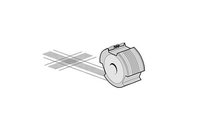What are the factors that affect salt spray testing? Analysis of reasons for non-compliance
Date:2023-06-15 14:28:59 Views:6085
Salt spray test is an experimental method for testing the resistance of materials to salt spray. It is commonly used to test the corrosion resistance of materials, and the evaluation results are of crucial significance for the quality control and guarantee of materials and products. The results of salt spray tests are influenced by many factors, such as test methods, test environments, etc., and may also be affected by some factors, resulting in unqualified test results. This article will introduce the factors that affect the salt spray test and analyze the reasons for non-compliance.
Factors affecting salt spray testing
(1) Test methods and conditions: Different test methods and conditions have a significant impact on the results of salt spray testing. For example, for different materials and products, the testing time and temperature may also vary. For example, the ASTM B117 standard is for metal and alloy testing, with a testing time of 48 hours and a temperature control of around 35 ℃, while the ISO 9227 standard is for certain composite materials, with a testing time of 240 hours and even a temperature control of around 50 ℃. The salinity level of the air in the experimental environment is also an important factor affecting the test results.
(2) Test equipment and facilities: The quality and accuracy of salt spray test equipment and facilities also directly affect the test results. The testing equipment should be able to provide uniform salt spray and a constant testing environment to avoid the occurrence of testing errors.
(3) Test sample and preparation: The quality and preparation process of the test sample also affect the results of the salt spray test. If there are impurities such as oil stains and oxidation on the surface of the sample, it will affect the test results.
_20230615142543_128.jpg)
Analysis of reasons for non-compliance
Different factors have varying degrees of influence on the results of salt spray tests, but the unqualified test results are generally summarized as the following reasons.
Not cleaned before the test: The surface of the material was not cleaned before the test, and there were dirt and grease on the surface, which could affect the corrosiveness of the salt spray.
Improper test temperature: The higher the test temperature, the better the corrosion resistance of the material. However, if the temperature is too high, it can cause deformation or damage to the material.
Insufficient test time: Due to insufficient test time, the corrosion resistance of the material cannot be fully demonstrated, which may result in unqualified test results.
Improper salt spray concentration: If the salt spray concentration is too high, it can lead to the formation of salt frost on the surface of the material, affecting its corrosion resistance and resulting in unqualified test results.
Improper spray method: Improper spray method may lead to water drops or uneven distribution of salt spray on the material surface, affecting corrosion resistance, and the test result is unqualified.
Poor Surface states of materials: poor Surface states of materials, such as roughness, cracks or scratches, will affect the corrosivity of salt spray and lead to unqualified test results.
The application of salt spray testing is very extensive, which can provide performance data of materials or products in harsh environments. However, the accuracy and reliability of its test data require us to choose appropriate test environments and equipment, and strictly control test conditions. Therefore, when conducting salt spray tests, it is necessary to carefully analyze each factor, identify the reasons for non-compliance, and take corresponding measures to improve to ensure the accuracy and reliability of the test results. Chuangxin Testing is a professional testing institution for electronic components. Currently, it mainly provides integrated circuit testing services such as capacitors, resistors, connectors, MCU, CPLD, FPGA, DSP, etc. Specializing in functional testing of electronic components, appearance testing of incoming electronic components, anatomical testing of electronic components, acetone testing, X-ray scanning testing of electronic components, and ROHS composition analysis testing. Welcome to call, we will be happy to serve you.




 Weixin Service
Weixin Service

 DouYin
DouYin
 KuaiShou
KuaiShou





















